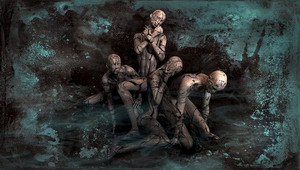 Last week I promised to reveal to you the single biggest thinking/feeling mistake that is responsible for most of the suffering in our lives. The last six newsletters have been about nutritional and physical causes behind mental health issues like depression and anxiety. The big message I wanted to get across is that very often we think that when we feel bad mentally or emotionally that we must have something messed up in how we are thinking or feeling. We are products of the psychology age where psychological conditions are taught to us as being products of our mind. Understand that this is a very new concept for common humanity. Philosophers would discuss possible subtle or experiential influences on our feeling states, but the common person blamed temperament problems on physical imbalances. It has only been the last 150 years that temperament has been ascribed to internal mental processes.
Last week I promised to reveal to you the single biggest thinking/feeling mistake that is responsible for most of the suffering in our lives. The last six newsletters have been about nutritional and physical causes behind mental health issues like depression and anxiety. The big message I wanted to get across is that very often we think that when we feel bad mentally or emotionally that we must have something messed up in how we are thinking or feeling. We are products of the psychology age where psychological conditions are taught to us as being products of our mind. Understand that this is a very new concept for common humanity. Philosophers would discuss possible subtle or experiential influences on our feeling states, but the common person blamed temperament problems on physical imbalances. It has only been the last 150 years that temperament has been ascribed to internal mental processes.
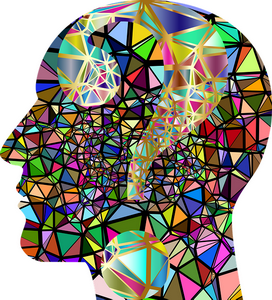 The last six weeks have shown that the old view of mental issues stemming from internal physical imbalances has a lot of truth to it. To have a healthy mind, you must first have a healthy body. But that being said, there is a mental side to mental health concerns that also need to be addressed. The most comprehensively studied and validated system for addressing mental health issues is called Cognitive Behavioral Therapy (CBT). The key voice in the development of this system is a psychologist/ psychiatrist named Albert Ellis. Many others going all the way back to the stoic philosophers have contributed to the development of this approach to the mind, but Albert has been leading the pack. While many other luminaries like Sigmund Freud, Carl Jung, Alfred Adler, Abraham Maslow, and Carl Rogers have added immeasurably to our understanding of the human mind, it is the followers of CBT that are able to produce actual measurable changes in people’s functioning in short periods of time. Much of my approach to healing the mind comes from CBT.
The last six weeks have shown that the old view of mental issues stemming from internal physical imbalances has a lot of truth to it. To have a healthy mind, you must first have a healthy body. But that being said, there is a mental side to mental health concerns that also need to be addressed. The most comprehensively studied and validated system for addressing mental health issues is called Cognitive Behavioral Therapy (CBT). The key voice in the development of this system is a psychologist/ psychiatrist named Albert Ellis. Many others going all the way back to the stoic philosophers have contributed to the development of this approach to the mind, but Albert has been leading the pack. While many other luminaries like Sigmund Freud, Carl Jung, Alfred Adler, Abraham Maslow, and Carl Rogers have added immeasurably to our understanding of the human mind, it is the followers of CBT that are able to produce actual measurable changes in people’s functioning in short periods of time. Much of my approach to healing the mind comes from CBT.
 So what is my simplified take on the key point of leverage to relieve suffering? In simple terms, our suffering comes from our beliefs about life and about ourselves. We have a self-built set of assumptions about how life is supposed to work and we get really upset when it does not work that way. The problem is that our assumptions and beliefs are not rational; not based on reality. A really basic belief we all seem to have is described by Ellis as “The world, and the people in it, must be arranged so that I get practically everything that I really want when I want it. And further, conditions must be arranged so that I don’t get what I don’t want. Moreover, I usually must get what I want quickly and easily.”
So what is my simplified take on the key point of leverage to relieve suffering? In simple terms, our suffering comes from our beliefs about life and about ourselves. We have a self-built set of assumptions about how life is supposed to work and we get really upset when it does not work that way. The problem is that our assumptions and beliefs are not rational; not based on reality. A really basic belief we all seem to have is described by Ellis as “The world, and the people in it, must be arranged so that I get practically everything that I really want when I want it. And further, conditions must be arranged so that I don’t get what I don’t want. Moreover, I usually must get what I want quickly and easily.”
 We have this fundamental belief that our existence is of significant importance to everyone and essential to the continuance of reality itself. Because of our profound importance, we should get everything our way. Everyone should be our way and do things our way because we exist. Life is all about us and therefore we should be in control. Few people are willing to admit that this is how they feel inside, but that is what drives their anger or frustration, or depression when things are not their way. This is the core of the deep inner belief that generates most of our suffering. Life is painful because it is always shoving it in our face that we are not the center, not the most important, and everyone is not going to be our way. These are the beliefs of a two-year-old, and typically they are formed when we are two to five years old. You can recognize this by the use of black and white absolute thinking and the use of words like should, must. and supposed to.
We have this fundamental belief that our existence is of significant importance to everyone and essential to the continuance of reality itself. Because of our profound importance, we should get everything our way. Everyone should be our way and do things our way because we exist. Life is all about us and therefore we should be in control. Few people are willing to admit that this is how they feel inside, but that is what drives their anger or frustration, or depression when things are not their way. This is the core of the deep inner belief that generates most of our suffering. Life is painful because it is always shoving it in our face that we are not the center, not the most important, and everyone is not going to be our way. These are the beliefs of a two-year-old, and typically they are formed when we are two to five years old. You can recognize this by the use of black and white absolute thinking and the use of words like should, must. and supposed to.
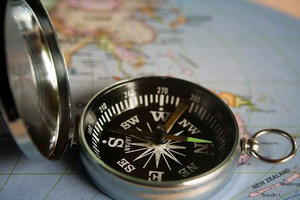 These early beliefs are part of how we learned to safely navigate the world. We adopted these rules to control our behavior and to project an illusion of safety onto an otherwise wildly chaotic and unpredictable world. The story is that if everyone acts the way they are supposed to then we would all be safe and happy. But people don’t act the way they are supposed to. Everyone has their own personal story of what supposed to looks like, and it does not look like your or my story. The biggest difference is that they all think that they are the most important ones on the planet, not you or me. They think that their version of right and wrong is the right version and ours is the wrong version… just like what we think about their version.
These early beliefs are part of how we learned to safely navigate the world. We adopted these rules to control our behavior and to project an illusion of safety onto an otherwise wildly chaotic and unpredictable world. The story is that if everyone acts the way they are supposed to then we would all be safe and happy. But people don’t act the way they are supposed to. Everyone has their own personal story of what supposed to looks like, and it does not look like your or my story. The biggest difference is that they all think that they are the most important ones on the planet, not you or me. They think that their version of right and wrong is the right version and ours is the wrong version… just like what we think about their version.
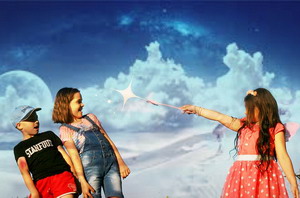 I like the way the blogger Eric Barker puts it – should is denial. We try to use it as some sort of magic wand to alter the fabric of the universe and make others be our way. When that does not work, we feel entitled to get angry and force them to be our way. After all, our way is the right way. The problem is that our way is not the right way, it is only our way. It is the story we made up when we were very little in order to cope with a world that was too chaotic for us to understand, much less adapt to. Yes, we were told most of the rules by our parents and the like, but the fact that these rule stories are passed down for generations does not make them any more true.
I like the way the blogger Eric Barker puts it – should is denial. We try to use it as some sort of magic wand to alter the fabric of the universe and make others be our way. When that does not work, we feel entitled to get angry and force them to be our way. After all, our way is the right way. The problem is that our way is not the right way, it is only our way. It is the story we made up when we were very little in order to cope with a world that was too chaotic for us to understand, much less adapt to. Yes, we were told most of the rules by our parents and the like, but the fact that these rule stories are passed down for generations does not make them any more true.
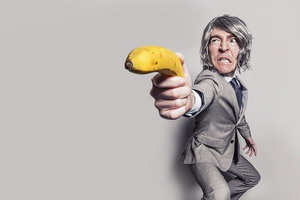 So what can we do? These beliefs are the stuff and substance our world is built from. Dr. Ellis describes a technique he calls the ABCD technique. A is the adverse experience. B is the belief. C is the consequence like fear or anger. D is for dispute; your power to dispute your interpretation of the adversity. Our interpretation is entirely built out of our beliefs. Let me borrow an example: if I shove a gun in your face, the adversity, your belief is that your life is in danger and you react with terror, the consequence. Now if you notice that what I am holding is in fact a water pistol, your belief that you are in mortal danger changes, and the fear is replaced with something like surprise or anger. Your belief controlled your reaction. Change your beliefs and your reactions change. This is the essence of how to relieve the majority of our sufferings. The majority of our suffering comes from irrational false beliefs about how we think things should be. Sure we would certainly prefer that things were our way, but there are no physical or cosmic laws commanding reality to observe our preferences. Letting go of suffering is simply about growing up and getting over our self-importance.
So what can we do? These beliefs are the stuff and substance our world is built from. Dr. Ellis describes a technique he calls the ABCD technique. A is the adverse experience. B is the belief. C is the consequence like fear or anger. D is for dispute; your power to dispute your interpretation of the adversity. Our interpretation is entirely built out of our beliefs. Let me borrow an example: if I shove a gun in your face, the adversity, your belief is that your life is in danger and you react with terror, the consequence. Now if you notice that what I am holding is in fact a water pistol, your belief that you are in mortal danger changes, and the fear is replaced with something like surprise or anger. Your belief controlled your reaction. Change your beliefs and your reactions change. This is the essence of how to relieve the majority of our sufferings. The majority of our suffering comes from irrational false beliefs about how we think things should be. Sure we would certainly prefer that things were our way, but there are no physical or cosmic laws commanding reality to observe our preferences. Letting go of suffering is simply about growing up and getting over our self-importance.
 Life can not treat us unfairly because there is no such thing as fair in the universe. Fair is just another made-up story we have. Life and people just are what they are. It is up to us to adapt to reality in order to get our needs and wants met. Is a hurricane fair? Is a forest fire fair? Are you going to stand your ground and face that fire as it rushes towards you and demand that it be fair? Good luck with that. People are no different. Your job is to get clear on what is real and act on what you can actually do to see to your own needs.
Life can not treat us unfairly because there is no such thing as fair in the universe. Fair is just another made-up story we have. Life and people just are what they are. It is up to us to adapt to reality in order to get our needs and wants met. Is a hurricane fair? Is a forest fire fair? Are you going to stand your ground and face that fire as it rushes towards you and demand that it be fair? Good luck with that. People are no different. Your job is to get clear on what is real and act on what you can actually do to see to your own needs.
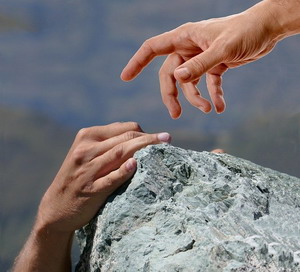 But what about altruism; helping out others? Altruism is profoundly self-serving, so go for it. The human species advanced to the top of the food chain precisely because of their ability to work together for the greater good. But don’t fool yourself into thinking that other people will see things your way. Your vision of the greater good rarely matches the next guy’s vision. Do what you do because your experience tells you what works for you. Life works when you communicate and negotiate mutual participation agreements that serve both sides equally. That way both parties are equally motivated to fulfill their agreements. You both come out ahead.
But what about altruism; helping out others? Altruism is profoundly self-serving, so go for it. The human species advanced to the top of the food chain precisely because of their ability to work together for the greater good. But don’t fool yourself into thinking that other people will see things your way. Your vision of the greater good rarely matches the next guy’s vision. Do what you do because your experience tells you what works for you. Life works when you communicate and negotiate mutual participation agreements that serve both sides equally. That way both parties are equally motivated to fulfill their agreements. You both come out ahead.
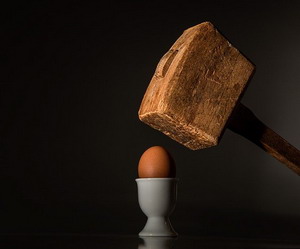 So there you have it. The cause of most suffering is our attachment to our way. Our way is for us to pursue, not to impose on others or life.
So there you have it. The cause of most suffering is our attachment to our way. Our way is for us to pursue, not to impose on others or life.
Take care,
David
